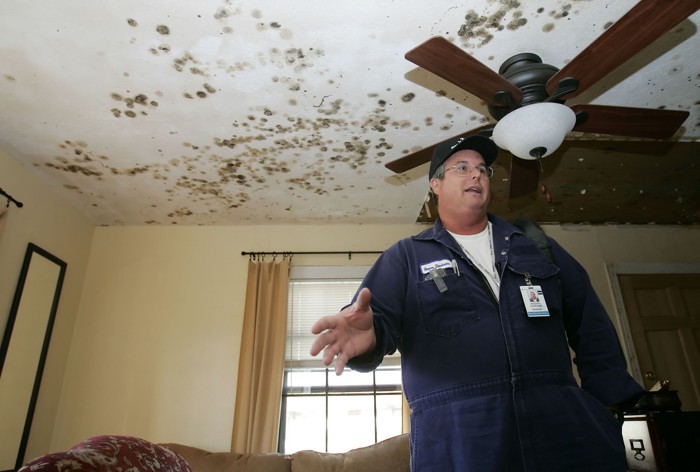Hurricane Harvey ripped through Texas and caused staggering amounts of devastation. Now amidst the cleanup, are allergies and asthma going to be a concern for the health of Harvey-affected residents?
Floods Bring Health Issues
Flooding brings many hidden health issues to light that are usually pushed down in priority. The devastation Hurricane Harvey brought to Texas makes prioritizing health care an issue. People are trapped, displaced, or require shelter and drinking water. These are the main concerns, forcing potential health issues from the minds of those affected. After the flood waters recede and clean up begins, illnesses will begin to appear and respiratory ailments will increase.
Clean Up
Clean up is now taking place in Texas, as people try to get their lives back to a semblance of normalcy. Cleaning a home that has been flooded comes with some major risks. Contracting a disease from touching something submerged in flood water is very common. Outside of the standard diseases, other major health concerns come from exposure to mold or increased allergies. Mold can begin growing within a few days of a flood and will quickly take over a home. Proper cleaning procedures are imperative to rid the home of all the mold.
Health Concerns

There are many health concerns for those cleaning up from a hurricane; respiratory issues and increased allergies are two of these. Allergies and asthma can worsen during tropical storms for many reasons. Wind gusts can spread wet mold spores into the air. Additionally, losing power means losing the air conditioner, which filters and dehumidifies the air. Asthma may get worse also and, if there is mold present, it’s a guarantee. People who are most likely to be affected are those with pre-existing conditions, like asthma or COPD, and those who have poor immune systems, such as children and the elderly.
Avoiding Dangerous Situations
Everyone reclaiming their home after a flood wants the cleanup to begin as quickly as possible. For those who suffer from allergies or asthma, this can’t happen without preparation. Increased exposure to allergens like mold can cause severe upper respiratory issues in even the healthiest individuals. Mold is a huge potential problem for any flood zone, and it doesn’t go away easily. There are still reports of mold in NYC’s Red Hook neighborhood after Hurricane Sandy in 2012. This is why proper cleaning and safety procedures are vital to anyone involved in the cleanup of properties.However, oo one with severe asthma or COPD should attempt to participate in the process of cleaning out a flooded property without a respirator.
Cleaning Methods
The best methods to successfully clean a home are as follows:
- Wear protective equipment: respirator, gloves, rubber boots, and eye protection.
- Use hot soap and water on all hard surfaces, followed with a bleach mixture.
- Throw away all consumables.
- Fans should be set up all over the home.
- Turn off electricity until it can be inspected.
- Pump out the basement.
- Shovel any contaminated mud.
After Cleaning is Done
Cleaning will take a great deal of time and effort. Mold can stick around for years, so ensuring insulation, carpets, and basement spaces are dry and clean is imperative for health purposes. After cleaning is done, a doctor should be consulted to ensure there is no lung damage or developing illnesses. The home is livable again, but watching for mold or unusual respiratory systems needs to be a constant for the next several years.
Hurricane Harvey will require a great deal of time for recovery. For those with allergy and asthma issues, steps will have to be taken to decrease allergy symptoms and avoid an increase of asthma-related incidents. Consistent visits with a doctor and ensuring an inhaler or medication is always present is necessary when dealing with these issues.
Allergy Issues? Choose the Expert in Nasal Allergy Treatment
Dr. Nguyen is a national expert in the treatment of nasal allergies. Let us use the newest technology and our vast experience to customize a solution for your health needs. Houston Sinus and Allergy has over a decade of experience in treating nasal allergies. You can reach us by calling (832) 237-7777, or fill out the form at the top of the page to book an assessment to start feeling better.

